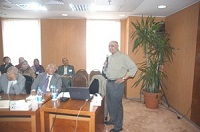Indeed, it can be argued that with the global financial crisis, developed country governments got a taste of what developing countries live with as a normal part of the development process. Crises can arise from many sources—differing in geographical or sectoral origins. Their onset is difficult to predict and, when they do hit, the rate at which they will recede is equally difficult to forecast. These twin uncertainties—of crisis type and crisis timing—frame the policy dilemmas in protecting the poor in the face of a crisis. They require that protection systems must be comprehensive, since the type of crisis and hence which of the poor are hurt is uncertain. Equally, they must be flexible, in the scaling up when the crisis hits and in the scaling down when the crisis passes, since crisis timing is uncertain. A range of social protection programs are assessed and reforms recommended in this framework. A key point, however, is that the full set of government programs, including those not normally thought of as falling in the “social protection” category, have a role to play in protecting the poor in the face of a macro level crisis. The framework also has implications for donors and international agencies, and suggests improvements to their instruments and operations that can support developing country governments in protecting the poor against the next crisis.

Speakers
Ravi Kanbur

